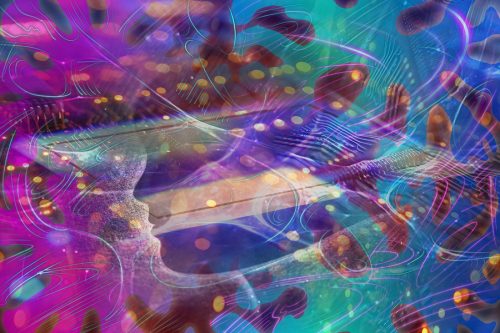Democratic Alliance on Digital Governance (DADG)
The Social Contract 2020, A New Social Contract in the Age of AI, mentioned: “Build and develop Democratic Alliance for Digital Governance as global power to enforce the Social Contract 2020.”
Here are some initial ideas to build a Democratic Alliance on Digital Governance (DADG):
I. DADG Mission:
The Democratic Alliance on Digital Governance (DADG) will use standards of the Social Contract 2020 to:
– Support fundamental rights, the rule of law, and democratic institutions, especially in the aftermath of COVID-19.
– Maintain peace and security (including AI and cyberspace) in Alliance members, and around the world.
– Address challenges, threats, and perils from any countries in the world, including climate change, pandemics, cyberattack, harmful AI, extreme nationalism, totalitarianism, dictators, destruction natural resources, or others that violate the Social Contract 2020.
– Create new models, methodologies, concepts, and initiatives to make a better and smarter world. This smarter world is a democratic one with deep-applied AI.
The Democracy Alliance on Digital Governance include:
- Democratic governments
- Companies in democratic countries
- Thoughtful Civil Societies or Intellectual Societies
II. Activities of DADG:
– Unite Inter-Parliamentary Alliance on China, Global Partnership on AI, World Leadership Alliance-Club de Madrid, OECD, Boston Global Forum, AIWS Innovation Network (AIWS.net) and top universities into an alliance – “Democratic Alliance on Digital Governance”
– Discuss and decide strategies for a peaceful, safe, effective, and smart world.
– Maintain peace and security for the world.
– Maintain standards of the Social Contract 2020 in global business such as setting up and maintaining the Supply Chain 2020.
– Create international laws and accords based on standards of the Social Contract 2020.
– Enforce international laws and accords.
– Create systems for Global Monitoring and Judging such as Global Courts and Global AI-Citizen.
III. Leadership:
Board of Governance: Coordinate between Boards below:
Executive Board: Coordinate and lead governments to protect and strengthen AI and digital democracy.
Industry Board: Coordinate and lead businesses to respect and apply AI and digital democracy, encourage businesses to exchange social reward value.
Monitoring Board: Supervise of laws, accords, and standards; generate initiatives for legislatures. Create laws and accords. This is representative for Thoughtful Civil Society or Intellectual Society.
Judging Board: Eg. Global Judges, assisted by Judging Systems. The Judging System uses AI and data science to support and assist courts, as well as recommend and suggest in judging conflicts or disputes between countries, organizations, and companies.
AI Assist Board: Create, develop, and maintain AI-systems of DADG.
IV. Implementation:
- Concepts:
Governments, think tanks, intellectual networks, advocacy groups, influential figures, and companies join Democratic Alliance on Digital Governance.
Governments will join and run the Executive Board (AI-Government)
Companies will join and run the Industry Board.
Thoughtful Civil Society or Intellectual Society will join and run Monitoring Board (AI-Congress)
Courts of countries will join and run Judging Systems (AI-Court)
AI Assist Coop will join and run AI Assist Board
The Monitoring and Judging Board and AI Assist Coop will be a check on the Executive Branch and the Industry Branch.
- Implementation:
- Group 1: 8 key countries of Democratic Alliance on Digital Governance: US, Japan, UK, Germany, France, India, Canada, Australia; and European Union.
- Group 2: innovative democracies such as Sweden, Denmark, Finland, Norway, Iceland, Austria, Switzerland, Netherlands, Belgium, Latvia, Estonia, Lithuania, Poland, Czech, Israel, New Zealand, South Korea, Taiwan.
- Group 3: Spain, Italy, Portugal, Greece, Slovakia, Slovenia, Hungary, Singapore, South Africa.
- Core organizations: Inter-Parliamentary Alliance on China (IPAC), Global Partnership on AI (GPAI), OECD, Boston Global Forum, Michael Dukakis Institute, AI World Society Innovation Network (AIWS.net), and World Leadership Alliance-Club de Madrid.










